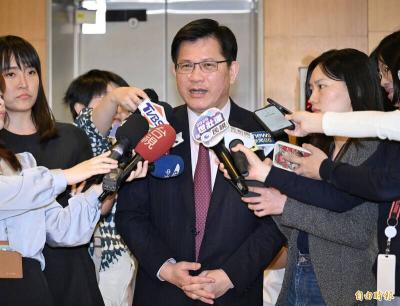The administration of President Ma Ying-jeou (馬英九) should pressure Beijing into promising that it would let other ASEAN nations sign free trade agreements (FTA) with Taiwan if it is sincere about improving economic ties, an economist said at a forum organized by the Taiwan Thinktank in Taipei yesterday morning.
Taiwan Thinktank chairman Chen Po-chih (陳博志) said the proposed economic cooperation framework agreement (ECFA) the administration wants to sign with Beijing would put the nation in an unfavorable position, not only economically but politically.
“It is like hunting: When you surround the animal from all sides it can only fall into your trap,” Chen said. “China’s suppression is the main reason we cannot sign any FTAs with other nations or join regional cooperation organizations. When China is interested in signing an economic accord with us, its purpose is clear.”
FAIR TREATMENT
A smarter way to go, Chen said, was to demand fair treatment from China rather than begging for special treatment.
“When we discuss further economic cooperation with China, we must ask China to allow other nations to cooperate with us in return,” Chen said.
When the nation negotiates an economic pact with China, he said, the government must also begin negotiations on signing FTAs with other nations, such as the US, Japan and ASEAN members.
Chen criticized the Ma administration for exaggerating the damage that the nation’s exclusion from the “ASEAN plus one” framework has done. The negative impact was not as significant as the administration has said and the government must immediately call a halt to its plan to sign an ECFA with China, Chen said.
While the government has argued that the economic pact would help normalize cross-strait trade, Chen said it would only make Taiwan more economically dependent on China and in reality economic ties would become more abnormal because the purpose of the accord is to give preferential treatment to trade between Taiwan and China.
EARLY HARVEST
The government has said an ECFA would target certain industries so they could reap an “early harvest.” Chen dismissed this as a “horrendous deception,” saying that other industries would pay a much higher price in the future.
Chiou Jiunn-rong (邱俊榮), an economics professor at National Central University, said he was not confident that China would allow other nations to sign FTAs with Taiwan because Beijing itself was not keen on signing them.
Saying that it was wishful thinking that an ECFA would benefit only Taiwan, Chiou said that China would ask Taiwan to reciprocate when it demanded tariff reductions or exemptions for certain products or industries.
“Since we set a lot of limits on Chinese products, who do you think will benefit when China asks us to remove these restrictions?” Chiou asked.
POLITICAL TOOL
While Ma has said the pact would steer clear of the sovereignty issue, Chiou said economic accords, such as an FTA, have long been used by powerful nations such as the US as a political tool to push its own diplomatic agenda.
“It is an important and effective carrot,” Chiou said.
“The political considerations definitely outweigh the economic ones,” he said.

Taiwan would welcome the return of Honduras as a diplomatic ally if its next president decides to make such a move, Minister of Foreign Affairs Lin Chia-lung (林佳龍) said yesterday. “Of course, we would welcome Honduras if they want to restore diplomatic ties with Taiwan after their elections,” Lin said at a meeting of the legislature’s Foreign Affairs and National Defense Committee, when asked to comment on statements made by two of the three Honduran presidential candidates during the presidential campaign in the Central American country. Taiwan is paying close attention to the region as a whole in the wake of a

Chinese Nationalist Party (KMT) Chairman Eric Chu (朱立倫), spokeswoman Yang Chih-yu (楊智伃) and Legislator Hsieh Lung-chieh (謝龍介) would be summoned by police for questioning for leading an illegal assembly on Thursday evening last week, Minister of the Interior Liu Shyh-fang (劉世芳) said today. The three KMT officials led an assembly outside the Taipei City Prosecutors’ Office, a restricted area where public assembly is not allowed, protesting the questioning of several KMT staff and searches of KMT headquarters and offices in a recall petition forgery case. Chu, Yang and Hsieh are all suspected of contravening the Assembly and Parade Act (集會遊行法) by holding

President William Lai (賴清德) has appointed former vice president Chen Chien-jen (陳建仁) to attend the late Pope Francis’ funeral at the Vatican City on Saturday on his behalf, the Ministry of Foreign Affairs said today. The Holy See announced Francis’ funeral would take place on Saturday at 10am in St Peter’s Square. The ministry expressed condolences over Francis’ passing and said that Chen would represent Taiwan at the funeral and offer condolences in person. Taiwan and the Vatican have a long-standing and close diplomatic relationship, the ministry said. Both sides agreed to have Chen represent Taiwan at the funeral, given his Catholic identity and

Taiwan would welcome the return of Honduras as a diplomatic ally if the next president of that country decides to make such a move, Minister of Foreign Affairs Lin Chia-lung (林佳龍) said today. “We would welcome Honduras if they want to restore diplomatic ties with Taiwan after their elections,” Lin said during a legislative hearing. At the same time, Taiwan is paying close attention to the Central American region as a whole, in the wake of a visit there earlier this year by US Secretary of State Marco Rubio, Lin said. Rubio visited Panama, El Salvador, Costa Rica and Guatemala, during which he